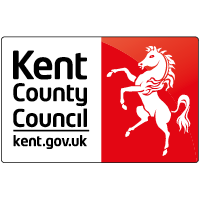Moving Traffic Enforcement FAQs
Here you can find answers to some of the frequently asked questions we have received.
Why have KCC taken on these enforcement powers?
KCC have taken on these enforcement powers to improve Kent’s road network. Kent Police were enforcing moving traffic offences, and now KCC have taken on this role, Kent Police will be able to focus on other policing priorities.
Each site to be enforced by KCC must help achieve at least one of the following objectives:
- improve road safety
- tackle network congestion
- increase public transport reliability
- improve air quality
- increase lifespan of highway assets.
How will KCC decide which sites are most important to enforce?
KCC takes a consistent and measured approach to enforcement, using cameras at sites where it has been identified there is an absolute need.
We select each site based on how enforcing moving traffic contraventions will benefit the area. For example, we might enforce at a location because it has a history of accidents and we want to reduce crashes, or because it is often congested and improving traffic flow will help buses and emergency services move more efficiently on Kent’s roads.
Why aren't KCC enforcing at every junction in Kent?
Automatic Number Plate Recognition (ANPR) cameras and issuing Penalty Charge Notices (PCNs) are implemented as a final measure to encourage drivers to comply with traffic signs and restrictions.
Will there be more sites in future?
Yes, we will continue to consult on additional sites requiring enforcement as they come forward.
How do I propose a future site for enforcement?
Please discuss any proposals for moving traffic enforcement with your parish or town council in the first instance.
Will KCC make any money from this?
KCC’s goal in enforcing moving traffic contraventions is not to generate income. We have taken on these powers to make a difference to the highway network, not to raise money.
We hope that better enforcement at these sites will help improve compliance. This should lead to improved safety, reduced congestion, and better public transport. As more people comply with these rules, we expect the number of Penalty Charge Notices to decrease.
What will KCC do with the income generated by fines?
If there is any money left over once the operational costs have been met, this will be used for highway improvement projects in line with strict government guidance. This funding will only be granted to projects that that help achieve one of the following objectives:
- improve road safety
- tackle network congestion
- increase public transport reliability
- improve air quality
- increase lifespan of highway assets.
What will happen if I illegally drive through a restriction and it’s caught on camera?
For the first six months after an enforcement camera has been installed, drivers will receive a warning notice for a first contravention (no fine). Second and subsequent contraventions will result in a Penalty Charge Notice (PCN). After the first six months of the camera being installed all contraventions will receive a PCN. If the PCN is paid within 21 days, the charge is £35. If paid after 21 days, the charge increases to £70. If the charge is not paid within 56 days the case will be passed to a debt collection agency. Drivers can appeal a PCN at any stage in the process.
Will taxis be able to use bus gates?
Bus gates are installed across the county to help reduce traffic congestion and encourage the use of public transport. Only certain vehicles are allowed to pass through each bus gate. The list of permitted vehicles is detailed in a legal document called a Traffic Regulation Order (TRO). Each bus gate has its own TRO, so the types of vehicles allowed can vary from one location to another.
No bus gates in Kent, or anywhere else in the country, have ever permitted private hire vehicles (pre-booked taxis) to use bus gates. However, hackney carriages (normally black cabs that can be hailed from the side of the road) are included in many TROs and are therefore allowed access. The more vehicles that are allowed through bus gates, the less effective they become. Allowing additional vehicles, such as private hire vehicles, to use them would result in greater delays for public transport users and undermine their original purpose.
What is the law for stopping in a yellow box junction?
Highway Code Rule 174 states that a driver must not enter a yellow box junction until the exit road or lane is clear. However, a driver may enter the box and wait when wanting to turn right and is only stopped from doing so by oncoming traffic, or by other vehicles waiting to turn right. At signalled roundabouts a driver must not enter the yellow box junction unless it can be crossed over completely without stopping.
How can I comment on the sites you are proposing to enforce?
Please complete the online questionnaire for each site. Alternatively if you cannot take part online, a Word version will be available to complete on the consultation webpage. If you need any support to provide your views contact details are also available on the webpage.
